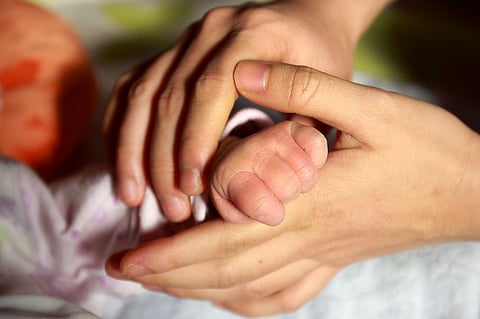

Twenty-three years ago when Vidya Shankar became a parent, she found that there was no one she could turn to for help when her son put her in a tough spot. She had to wait four years to parents like herself who had an adopted child.
A resident of Bengaluru, Vidya and her husband had adopted a boy. Back then, she recalls that the procedure to adopt a child was all there was to it, there was no one to help her with dealing with the questions that her son or society might one day ask her.
“When we adopted our son, many people told us that we did a great thing. But we both felt there was something missing in their perspective, which we needed to communicate. Adoption was a family building process that does not have any charity or philanthropy in mind,” Vidya says.
If this was the attitude of society, adoption agencies saw it as little more than a business transaction. “Take the child from the agency, pay up the money, go to court, get your order and leave. That was the procedure back then,” Vidya recalls. “But adoption is a very emotional process.”
Four years later, she happened to attend a meeting organized by an adoption agency where she met other women like herself – Sheela Kamath and Saraswati Srinath. In a year’s time, they decided to start Sudatta, an organization which would fill the gap between these two extremes and help parents find support if they needed it.
“The approach to adoption has seen a lot of changes. Over the years, the stigma attached to it has reduced and society is more accepting now,” says Sheela, who adopted her daughter in 1996.
When it came to being a parent to an adopted child, Sheela feels that one is conscious of it all the time. “You have to be a conscious parent having chosen this path – you wanted to make a difference to your life and you have re-written the child's destiny,” she said.
Couples decide to adopt children for various reasons, but mostly commonly when they are unable to have biological children.
Sheela says that most prospective adoptive parents come for counselling after they have convinced their extended family members. “It matters that the parents of the couples accept adoption if they are living with them. However, if the couples are staying alone, they take the decision by themselves,” she said.
Some couples decide to adopt a child if their biological child suffers from some disability or if they want a child of a specific gender. Most often, the preference is for a girl, Sheela says. “During counselling, we have seen many parents say that the love from a girl child is more. Above all that, the reality is that availability of girl child is more.”
When couples specifically ask for boys it is usually because they are looking for a male heir to family property that cannot be inherited by a daughter.
“We don't encourage such cases because it becomes obvious that the couples are going in for adoption only because they care for the property and not for love and affection,” Sheela said.
Acceptance from family members is important for the couple and the child too, as it contributes to the smoother interaction and comfortable environment. “During our home studies, in case it comes out that some of the immediate family members does not agree with adoption, we try to find out why and counsel them,” she said.
Once the issues of the adults are sorted out, the question of when and how to tell the child arises. “Our focus was to help the couples, who were looking for answers to raising and telling the child. We advise couples on how much they need to tell the child and at what age?” Vidya says.
She explains that more care is required when children are older as they are aware that they had lived in institutional homes or orphanages. “Couples should focus on giving unconditional love and keeping the child happy. In our monthly meetings, we give them tips from our own experience,” she says.
Rangadurai, a member of Sudatta in Chennai said, “I just came across Sudatta after I adopted. Although I have not faced any trouble or problems in parenting so far, I just thought it would be nice to join a community and learn from their experience.”
Another problem that Suddatta faces is in helping prospective parents navigate the maze of legal procedure.
A prospective adoptive parent from Delhi who requested anonymity says, “There should be more such initiatives that simplify the procedure. Adoption is most times not just the couple's decision. Popular cinema and literature have also skewed a lot of perception, and it needs some effort to set that perception right.”